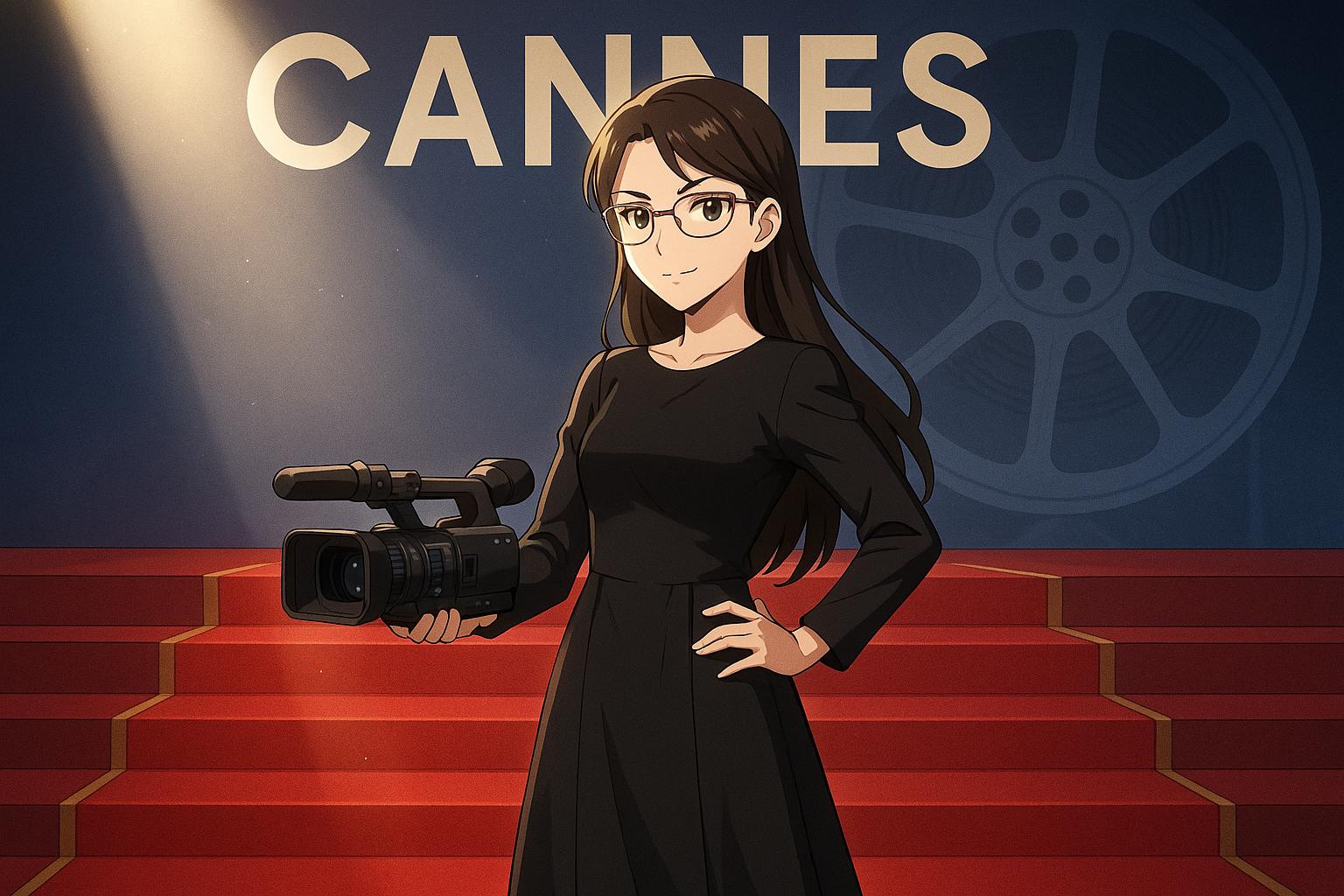The Cannes Film Festival, an annual highlight in the film industry calendar, has once again made headlines—not for its glitzy premieres or star-studded events, but for a significant ban on nudity across its red carpet. This decision appears to be a timely response to a growing trend of increasingly revealing fashions, particularly among female stars. The organisers have stated that "for decency reasons, nudity is prohibited," a move that some see as a necessary step towards shifting the focus of these events from appearance to achievement.
Reflecting on the recent trends in celebrity fashion, many have questioned the necessity of sheer and barely-there attire that has dominated red carpet events, often overshadowing the artistic accomplishments they are meant to celebrate. One particularly eye-catching moment arrived with Bianca Censori's controversial gown at the 2025 Grammy Awards, where she donned a fully transparent mini dress that left little to the imagination. This bold choice became a focal point of criticism across social media and news outlets alike, with some commentators branding it as "crass, classless, and desperate." Such comments echo a broader frustration that has escalated over the last few years as women’s clothing choices at high-profile events have increasingly prioritised shock value over sophistication.
Censori's appearance, accompanied by her husband Kanye West, sparked widespread discussions about the implications of such fashion choices. Critics argued that such displays reinforce a narrative wherein female stars are often valued more for their physical appearance than their artistic contributions, further complicating the ongoing conversation about gender equality in the entertainment industry. In a cultural landscape where objectification frequently overshadows empowerment, the cautionary warnings from feminist voices take on renewed significance—especially as young women navigate their identities in the public eye.
The recent year has not been without similar instances. At the Brits, pop star Charli XCX opted for a sheer black ensemble that echoed Censori’s choice, while singer Sabrina Carpenter’s provocative outfit drew critiques likening it to the performance art of the Red Light District in Amsterdam. Even established actresses, like Davina McCall, have not shied away from sheer attire, seemingly subscribing to the belief that revealing outfits are a legitimate means to garner attention.
For some observers, including feminists engaging with these issues, this trend evokes dismay and frustration. Talented women risk losing focus on their skills as their appearances dominate discussions—unsettling implications that detract from how they are perceived in a professional context. Nicole Kidman and Beyoncé, both icons of their craft, paradoxically contribute to this narrative through their choice of attire, standing alongside their partners who are often clothed more conservatively. This juxtaposition raises uncomfortable questions about social norms and the residual power dynamics that dictate women’s perceived value.
The longstanding fight for women's rights and respect is indeed fraught with challenges, particularly when cultural trends appear to undermine hard-won advances. The spectacle of top models like Bella Hadid posing in eye-catching but revealing garments for photographers can be framed as a reinforcement of misogynistic ideals, where appreciation for female talent is perpetually overshadowed by the allure of sexuality.
Nonetheless, the Cannes Film Festival’s decision to impose a ban on nudity could be construed as a vote for decency within an industry that occasionally seems unmoored from its ethical foundations. As the festival aims to pivot focus back to cinematic achievements, it may very well suggest that a turning tide is possible—where artistry is celebrated for its intrinsic merits rather than the allure of its presenters.
As cultural landscapes evolve, it remains paramount that society encourages conversations about how women are celebrated for more than just their physical forms. The mantle of empowerment in fashion should not merely rest on the freedom to wear what one wishes, but rather on the recognition that talent and hard work should always be at the forefront of public perception.
The 2023 Cannes Film Festival may prove to be more than just a glamourous event; it could signal a movement towards maintaining respect and dignity within the arts, nudging the industry toward a time when the spotlight will shine brightly on creativity, casting aside the shadows of objectification and superficiality.
Reference Map
- Paragraphs 1, 2, 3 - Source (1)
- Paragraphs 4, 5 - Source (2), (3), (5)
- Paragraphs 6, 7 - Source (4), (6)
- Paragraph 8 - Source (7)
- Paragraph 9 - Source (1)
- Paragraphs 10, 11 - Source (1)
Source: Noah Wire Services
